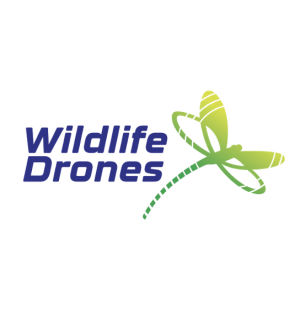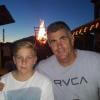With new technologies revolutionizing data collection, wildlife researchers are becoming increasingly able to collect data at much higher volumes than ever before. Now we are facing the challenges of putting this information to use, bringing the science of big data into the conservation arena. With the help of machine learning tools, this area holds immense potential for conservation practices. The applications range from online trafficking alerts to species-specific early warning systems to efficient movement and biodiversity monitoring and beyond.
However, the process of building effective machine learning tools depends upon large amounts of standardized training data, and conservationists currently lack an established system for standardization. How to best develop such a system and incentivize data sharing are questions at the forefront of this work. There are currently multiple AI-based conservation initiatives, including Wildlife Insights and WildBook, that are pioneering applications on this front.
This group is the perfect place to ask all your AI-related questions, no matter your skill level or previous familiarity! You'll find resources, meet other members with similar questions and experts who can answer them, and engage in exciting collaborative opportunities together.
Just getting started with AI in conservation? Check out our introduction tutorial, How Do I Train My First Machine Learning Model? with Daniel Situnayake, and our Virtual Meetup on Big Data. If you're coming from the more technical side of AI/ML, Sara Beery runs an AI for Conservation slack channel that might be of interest. Message her for an invite.
Header Image: Dr Claire Burke / @CBurkeSci

Explore the Basics: AI
Understanding the possibilities for incorporating new technology into your work can feel overwhelming. With so many tools available, so many resources to keep up with, and so many innovative projects happening around the world and in our community, it's easy to lose sight of how and why these new technologies matter, and how they can be practically applied to your projects.
Machine learning has huge potential in conservation tech, and its applications are growing every day! But the tradeoff of that potential is a big learning curve - or so it seems to those starting out with this powerful tool!
To help you explore the potential of AI (and prepare for some of our upcoming AI-themed events!), we've compiled simple, key resources, conversations, and videos to highlight the possibilities:
Three Resources for Beginners:
- Everything I know about Machine Learning and Camera Traps, Dan Morris | Resource library, camera traps, machine learning
- Using Computer Vision to Protect Endangered Species, Kasim Rafiq | Machine learning, data analysis, big cats
- Resource: WildID | WildID
Three Forum Threads for Beginners:
- I made an open-source tool to help you sort camera trap images | Petar Gyurov, Camera Traps
- Batch / Automated Cloud Processing | Chris Nicolas, Acoustic Monitoring
- Looking for help with camera trapping for Jaguars: Software for species ID and database building | Carmina Gutierrez, AI for Conservation
Three Tutorials for Beginners:
- How do I get started using machine learning for my camera traps? | Sara Beery, Tech Tutors
- How do I train my first machine learning model? | Daniel Situnayake, Tech Tutors
- Big Data in Conservation | Dave Thau, Dan Morris, Sarah Davidson, Virtual Meetups
Want to know more about AI, or have your specific machine learning questions answered by experts in the WILDLABS community? Make sure you join the conversation in our AI for Conservation group!
Software engineer
- 0 Resources
- 3 Discussions
- 3 Groups
Society for Conservation GIS


- 0 Resources
- 20 Discussions
- 5 Groups
Aspiring data scientist with a passion to work for the environment
- 0 Resources
- 0 Discussions
- 3 Groups
I am the executive director of FishEye Collaborative, a non-profit leveraging emergent underwater listening technologies to grow our understanding of marine ecosystems. I am also the president of FishEye Acoustics, a marine tech company developing a new class of acoustic sensors.
- 0 Resources
- 0 Discussions
- 6 Groups
- @womble
- | he/him
AI Researcher, mostly NLP, with 30+ years experience. Recently consulted for a company ding drone image analysis and Google Cloud
- 0 Resources
- 1 Discussions
- 6 Groups
- @Thomas_Luypaert
- | He/him
Norwegian University of Life Sciences (NMBU)
Ecological monitoring enthusiast with a focus on ecological and conservation research
- 1 Resources
- 1 Discussions
- 7 Groups
Working in relation to ecosystem services
- 0 Resources
- 0 Discussions
- 8 Groups
- @jdomingo
- | He/Him
I am an enthusiast for nature, technology development, biodiversity conservation and nature inspired design. I posses a technical and environmental background, and I am looking to explore the potential that advance technology has to empower the field of nature conservation.

- 0 Resources
- 9 Discussions
- 2 Groups
Wildlife Drones
Wildlife Drones has developed the world’s most innovative radio animal-tracking system using drones so you can track your radio-tagged animals like never before.

- 11 Resources
- 8 Discussions
- 32 Groups
- @eccrc25
- | she/they
- 0 Resources
- 0 Discussions
- 5 Groups
- @och3k
- | she/her
- 0 Resources
- 0 Discussions
- 2 Groups
- @rowan
- | they / them
Octophin Digital
Jack of all Trades. I've been a zoo keeper, a conservation geneticist and a web developer who specialises in conservation projects and orgs.
- 0 Resources
- 3 Discussions
- 15 Groups
Join the Seeed Vision Challenge, an opportunity for conservation innovators to harness the power of AI vision sensors for environmental monitoring and protection.
10 April 2024
Full-Stack Software Developer (Python/React) - Specializing in AI/ML for Wildlife Conservation
5 April 2024
Article
Article from Ars Technica about how difficult it is to detect and avoid kangaroos...
3 April 2024
18 month postdoc research position, Netherlands, EU-funded
28 March 2024
Article
You’re invited to the WILDLABS Variety Hour, a monthly event that connects you to conservation tech's most exciting projects, research, and ideas. We can't wait to bring you a whole new season of speakers and...
22 March 2024
Join our multi-national team at the AI for Biodiversity Change Global Climate Center! We're hiring a Research Data Manager & Tech Coordinator at Ohio State. Support cutting-edge research on climate change &...
15 March 2024
Catch up on the conservation tech discussions and events that happened during World Wildlife Day 2024!
7 March 2024
EcoAssist introduces a free African species identification model for camera trap images, capable of recognising 30 species.
5 March 2024
Join us to help prevent biodiversity loss! Understory is hiring a postdoc to lead R&D Development on generalizing Computer Vision models for vegetation identification across space/time/phenotypes.
29 February 2024
Join the Luxembourg Institute of Science and Technology (LIST) in pioneering environmental and ecological monitoring! 🌍💡 As part of ERIN’s Observatory for Climate, Environment, and Biodiversity (OCEB), you'll be at the...
26 February 2024
SNTech are recruiting for 3 roles to assist us to develop computer vision pipelines for underwater monitoring
15 February 2024
We invite applications for the third Computer Vision for Ecology (CV4E) workshop, a three-week hands-on intensive course in CV targeted at graduate students, postdocs, early faculty, and junior researchers in Ecology...
12 February 2024
April 2024
event
October 2024
November 2023
event
| Description | Activity | Replies | Groups | Updated |
|---|---|---|---|---|
| Hi Matthew,Thanks for your advice, this is really helpful!I'm planning to use it in a seagrass meadow survey for a series of ~20 drops/sites to around 30 m, recording for around... |
|
Acoustics, AI for Conservation, Data management and processing tools, Emerging Tech, Sustainable Fishing Challenges | 20 hours 21 minutes ago | |
| We are incredibly thankful to WILDLABS and Arm for selecting the MothBox for the 2024 WILDLABS Awards. The MothBox is an... |
|
Autonomous Camera Traps for Insects, AI for Conservation, Emerging Tech, Open Source Solutions | 22 hours 7 minutes ago | |
| Hi Johnathan!Here are a few examples where UAVs and AI has been used to spot animals. https://www.mdpi.com/2504-446X/7/3/179#:~:text=These%20vehicles%20follow%20flight%... |
|
AI for Conservation | 1 day 8 hours ago | |
| Super great to see that there will be more work on insect ecoacoustics! So prevalent in practically every soundscape, but so often over-looked. Can't wait to follow this project... |
|
Acoustics, AI for Conservation | 2 days 20 hours ago | |
| Happy to explain for sure. By Timelapse I mean images taken every 15 minutes, and sometimes the same seals (anywhere from 1 to 70 individuals) were in the image for many... |
|
AI for Conservation, Camera Traps, Open Source Solutions, Software and Mobile Apps | 5 days 12 hours ago | |
| Greetings Everyone, We are so excited to share details of our WILDLABS AWARDS project "Enhancing Pollinator Conservation through Deep... |
|
AI for Conservation, Autonomous Camera Traps for Insects | 1 week 1 day ago | |
| EcoAssist is an application designed to streamline the work of ecologists dealing with camera trap images. It’s an AI platform that... |
|
Software and Mobile Apps, AI for Conservation, Camera Traps | 1 week 5 days ago | |
| We could always use more contributors in open source projects. In most open source companies Red Hat, Anaconda, Red Hat and Mozilla, people often ended up getting hired largely... |
|
Acoustics, AI for Conservation, Conservation Tech Training and Education, Early Career, Marine Conservation | 3 weeks ago | |
| Hi @timbirdweather I've now got them up and running and winding how I can provide feedback on species ID to improve the accuracy over time. It would be really powerful to have a... |
|
Acoustics, AI for Conservation, Citizen Science, Emerging Tech | 4 weeks 2 days ago | |
| Really interesting project. Interesting chip set you found. With up to around 2mb sram that’s quite a high memory for a ultra low power soc I think.It might also be... |
+8
|
Acoustics, AI for Conservation | 1 month ago | |
| Absolutely! I pretty much do the same thing, the resizing step I think relates to what I still have to do. Some large images caused my code to crash.I want to take it one step... |
|
AI for Conservation | 1 month 2 weeks ago | |
| This is great, thank you so much @zhongqimiao ! I will check it out and looking forward for the upcoming tutorial! |
|
AI for Conservation, Camera Traps, Open Source Solutions | 1 month 2 weeks ago |
AI, sensors enhance wildfire detection
15 February 2023 10:27am
A pilot program in Oregon’s Willamette Valley will test how well artificial intelligence-enabled sensors can identify and characterize wildfires, which will help with responder resource allocation and boost community resilience.
Hiring Full Stack Developer at Conservation X Labs
10 February 2023 5:35pm
Call for Data: A Global Database of Tree Crown Footprints from RGB Imagery
3 February 2023 11:22am
10 February 2023 4:18pm
Bluesky have a commercial tree crown dataset available covering most of Great Britain (England, Wales and parts of Scotland). There is a canopy layer with approximate outlines of each canopy (the image on this page shows just circular crowns). It's created using aerial imagery.
Machine Learning Scientist
 British Antarctic Survey
British Antarctic Survey
10 February 2023 10:37am
Research Associate - Machine Learning (Underwater Sound)
10 February 2023 10:19am
Engineering Manager, Skylight
 Allen Institute for AI
Allen Institute for AI
10 February 2023 10:14am
New tutorial on Firetail 10 - annotation of acceleration data
8 February 2023 12:18pm
Hi! I created a new tutorial video on how to annotate high density acceleration data using Firetail 10 (www.firetail.de). In particular, I cover
* how to automatically segment your data
* how to edit and modify annotations
* how to transfer models across individuals
* how to overlay external and video annotations
If you like to follow the tutorial, grab
* your movebank account
* this study: https://www.movebank.org/cms/webapp?gwt_fragment=page=studies,path=stud…
* the free edition of Firetail from firetail.de
Commercially available connected audio sensors
2 February 2023 3:08pm
2 February 2023 3:55pm
Hi!
I am not aware of any such connected loggers/recorders but they would be nice.
The AudioMoths have been revolutionary in providing audologging at a low cost but they take a lot of "data muling" (carrying SD cards in and out of the field sites) and swapping of batteries.
Cheers,
2 February 2023 7:50pm
Hi Lars, thanks for the response. We are using lots of Song Meter Micro's atm and they have proved to be resilient. Just need something which doesn't involve going on site regularly - but get the data off.
3 February 2023 7:04pm
Rainforest Connection's (RFCx) Guardian devices may be of interest. They are solar-powered and have connectivity options for Wifi, GSM and satellite transfer. They've previously been used for detecting e.g., gunshots or chainsaws (using edge computing) and then sending positive detections/alerts to folks on the ground. RFCx also hosts Arbimon, a free, no-code software platform that facilitates analysis of audio data as well. Happy to chat more if you'd like to talk further about it!
Artificial Intelligence and Conservation: Indigenous AI
3 February 2023 4:40pm
Job: Building a network of conservation tech across continents
2 February 2023 1:50pm
Consultancy opportunity: Wildlife monitoring specialist
31 January 2023 11:26am
Assistant Professor in Conservation Science
25 January 2023 4:01pm
AI for Forest Elephants Challenge
25 January 2023 3:34pm
Advanced Field School in Computational Ecology
25 January 2023 2:54pm
Apply Now: AI for Conservation Office Hours
18 January 2023 5:15pm
Interview for Technologies in Conservation
24 November 2022 10:07am
16 January 2023 2:42pm
I'd be happy to chat with you if you wanted! My expertise is within passive acoustic monitoring particularly. The Conservation Tech Directory might be useful for you in identifying relevant actors within the space.
16 January 2023 5:16pm
Happy to contribute [email protected]
17 January 2023 5:12pm
My original background is in ecology and conservation, and am now in the elected leadership of the Gathering for Open Science Hardware which convenes researchers developing open source tech for science. I am not working on a specific piece of technology right now, but am happy to contribute some higher-level views for your interview if that helps.
African elephant facial or body recognition software
10 December 2018 7:26pm
14 November 2020 5:21pm
In DRCongo and just discovering this now. We operate in Lomami National Park, very remote regions, and our issue includes individual recognition of bonbos and forest elephants from camera trap data. Tim van Dam's comment hit home for me in that we have NO internet acces in the field sites, with internet, but not much access to cloud based propgram only in the cities of KIndu and Kisangani, over 100km from the field sites. We would liketo be able to download and use software, and even participate in testing some applications, but time lags are involved since data has to come out of thefield to move into the propgrams. I think basically we can do a lot with low tech solutions, and selectively move up the analytical chain but there is no question that we will remain with some fundamental connectivity problems....Is anyone esle facing thes kinds of constraints? Can anyone suggest some basic "recognition software" and a working group to allow us to get into this area and see what we can produce and contribute? John Hart www.bonoboincongo.com
15 November 2020 1:01am
This article in Seattle Times does pretty much a smiliar thing with Bears and you may find some solutiosn from their work
https://www.seattletimes.com/business/technology/training-facial-recognition-on-some-new-furry-friends-bears/
14 January 2023 9:48am
Hi Sophie, Can you please help me or get in touch in developing a system where we are able to detect an Elephant? Would like to discuss more about it. Kindly treat this as urgent!!
New paper - An evaluation of platforms for processing camera-trap data using artificial intelligence
13 January 2023 12:14am
We review key characteristics of four AI platforms—Conservation AI, MegaDetector, MLWIC2: Machine Learning for Wildlife Image Classification and Wildlife Insights—and two auxiliary platforms—Camelot and Timelapse—that incorporate AI output for processing camera-trap data. We compare their software and programming requirements, AI features, data management tools and output format. We also provide R code and data from our own work to demonstrate how users can evaluate model performance.
Conservation Technology Intern (Vietnam)
11 January 2023 5:00pm
PhD position (m/f/d) in Insect Ecology and Conservation
9 January 2023 12:53pm
Education Paper on Computer Vision for Ecology
9 January 2023 5:30am
Job: maker / workshop technician
5 January 2023 10:53am
Job: Software Engineer at Benioff Ocean Science Laboratory
19 December 2022 7:59pm
San Diego Zoo needs Summer Undergraduates!!
19 December 2022 1:58pm
Join NASA’s harmful algal bloom ML challenge and win prizes!
15 December 2022 7:56pm
Help - Innovative ways to track elephant movement
28 October 2022 4:50pm
4 November 2022 5:24pm
Why would you want to avoid alerting the rangers ?
You don't need high tech for this; elephants leave very obvious tracks and sign.
7 November 2022 12:52am
Hi Tyler,
Would like to introduce you to Ceres Tags products
- Ceres Tags products come in boxes of 5, 10 and 24.
- There are some software partners such as Earthranger, Mapipedia and possibly CiboLabs that would be able to assist you with your mapping vegetation requirements
- Ceres Tag does not require any towers, base stations and infrastructure. This allows you to see any movements from the heard outside of their normal herd (boundary alerts), and you will not be disturbing any of the flora and fauna with infrastructure set up.
- For the timing you are looking at, Ceres Wild pings directly to satellite 24 times a day. For Ceres Trace and Ceres Ranch there are 4 within 24 hours. Taking into consideration, when you set up alert areas, you will get them directly to your phone/laptop via your software of choice
- Ceres Ranch is a reusable tag that has just been launched. Use it on this project, remove the tag and then use the tag on your next project
- The software you choose will assist with the history of your animal movements. Ceres Tag is integrated with 11 software partners and in-development with 18 software partners https://cerestag.com/pages/software-partners
- Understanding it is a short-term project, you would be able to use Ceres Tags products without the additional expense of setting up and removing infrastructure- towers, gateways
- With Ceres Tag, you are purchasing the box of tags and picking a suitable software to deliver the information you require. On average, a box of 10 Ceres Trace Tags, is the same as 1 LoRaWAN tower.
14 December 2022 10:49am
I just came across this interesting paper in which seismic monotoring of animals like elephants was mentioned.
This is the study refered to:
Cheers,
Lars
CV4Ecology 2023 Applications
1 November 2022 8:01pm
3 November 2022 7:13pm
Hey Sara,
Thanks again for the session today--it was super helpful!
I have access to a pretty large network of camera trappers, and I'm currently surveying them to see who might be willing to share data with me. That being said, I can likely get data-sharing agreements with each of these agencies sorted out before the application deadline, but may not have the data in-hand by this time due to a lack of resources for transferring such large amounts of data.
I've used Azure Storage Explorer before to rapidly transfer large datasets like this, so I think it might be easier to compile all data in one location once we have access to the VMs. Would it be acceptable to apply with the signed data-sharing agreements in mind, and with the intent of organizing all of the data once we acquire access to the computing resources?
4 November 2022 6:02pm
Yes, that's definitely ok! You should just outline your larger plan and where you are at in the process in your application. However, the compute resources are intended to be used for model training and won't be available too far in advance of the school (or at least I can't guarantee they will be) , so you would need to make a plan for pre-summer workshop data storage, wrangling, and curation to get the data ready to train models on. Let me know if you're having issues with that and I can try to help brainstorm.
9 December 2022 8:23pm
Quick reminder that the deadline for applications is just shy of a week away.
This workshop is particularly geared to teach ecologists computer vision tools to apply to their research.
Tired of trying to manually count how many animals are in your images? Tired of listening to audio files to classify/detect species? Looking to clean and manage your data so that you can more easily access and analyze it? We're happy and eager to help you apply computer vision tools to try to help with these (and more!) tasks!
More info:
Feel free to comment here or message me directly if you have any questions!
PhD - Sensory ecology of vespine wasps
8 December 2022 12:47pm




























































3 February 2023 7:01pm
You should definitely talk with Ben Weinstein and co (the folks behind DeepForest), if you haven't already!